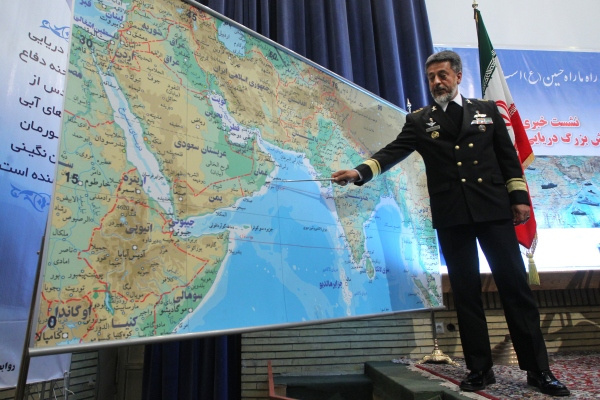With Oil Sanctions, Iran Has No Incentive to Keep the Strait of Hormuz Open

- In order to close the Strait of Hormuz, there is no need to use the southern waters of this strait and it is possible to do so even from Iran's shore. No country in the world is in agreement with the closure of the Strait because it plays an important role in the international scene. It is natural that Iran, more than other countries, has tried to keep the Strait open and is eager to have friendly relations with neighboring countries. Iran has always suggested the regional security arrangements plan to Persian Gulf countries. However, this plan has not been welcomed because of the US military occupation of the Persian Gulf and the fact that these countries have warm relations with the US.
- The closure of the Strait of Hormuz will not be beneficial for littoral states of the Persian Gulf. Furthermore, oil-importing countries will suffer from its closure. Even during the imposed war, Iran never attempted to close the Strait. Iran has always attempted to maintain the security of the Persian Gulf and the Strait of Hormuz. However, with the downing of an Iranian civilian aircraft in July 1988, the US tried to endanger the security of the Strait, but Iran vigilantly prevented the escalation of conflicts.
- When a threat against a country is raised, the people and their representatives are forced to react and, in this context, it is natural that Iranian parliamentarians are planning for this issue which stems from their concern. However, since the Strait of Hormuz is a national security issue, it is dealt with by the Supreme National Security Council.
- Closure of the Strait of Hormuz will create instability in the Persian Gulf and chaos in oil exports. This incident may lead to military confrontations.
- Iran has always emphasized providing the security of the Persian Gulf and the Strait of Hormuz and, in the present complicated situation, it is better if it expresses its policy based on keeping the Strait of Hormuz open to reduce negative propaganda against itself.
- The presence of US warships is the main barrier for cooperation of Persian Gulf littoral states with the Islamic Republic of Iran. US ships have been stationed in the Persian Gulf to create a gap between Arab countries and Iran. If US warships leave the Persian Gulf, security of shipping lines will be increased. Recently, these ships attacked a fishing boat in Dubai’s shores and killed two civilians in the boat. The presence of these ships will increase insecurity in the Persian Gulf.
- The importance of the Strait of Hormuz is not due to oil exports, but rather because it is a passageway for the import and export of various kinds of goods. If the pipeline is not used, the cost of oil exports will be reduced. A small percentage of the UAE’s oil is exported through the constructed pipeline. Basically, the political behavior and positions of neighboring countries must prevent growing costs and the security of the Persian Gulf and the Strait of Hormuz can increase cooperation.

